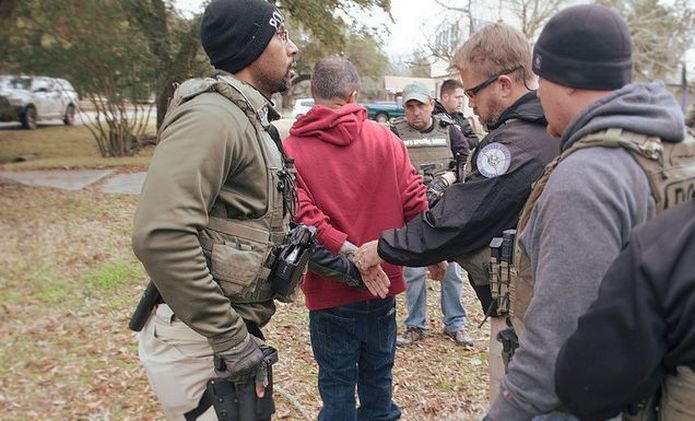Voting is a right reserved only for U.S. citizens. It is illegal for a non-citizen to vote in a state or federal election or primary. Even identifying yourself as a citizen when you are not one, disqualifies you from renewal of a green card or naturalization. In fact, it is disqualifying for all other immigration benefits and will make you subject to deportation.
Following are several instances when people sometimes make the mistake of identifying as a citizen before they actually have achieved that status. There are many more instances when accidentally identifying as a citizen can happen, but these are the most common:
Click "Read More" to continue reading
2. Completing Forms For An Employer: All employers are supposed to verify an employee’s eligibility to work. The employer will have the non-citizen provide an Employment Authorization Document (EAD), a Lawful Permanent Resident Card ("Green Card") or in some cases a visa. The form that is completed to verify eligibility to work is the USCIS Form I-9 which is completed by the employer (in part) and the applicant (in part). The form includes a checkbox which states that the employee is a US citizen. A non-citizen should never check this box, and should check one of the other boxes (depending on your situation). Employees should complete the first section of the form, and should verify any information entered by the employer (or anyone else that assisted them in completing that section) before they sign the form.
3. Financial Aid Applications (FAFSA): Eligibility for federal student aid is limited to citizens and lawful permanent residents (green card holders). However, many states will provide financial aid for college students who do not have legal status. Also, private grants may be available for non-documented students. Schools often use the FAFSA form to evaluate the financial needs of a student, even though the student is not applying for federal aid. If a non-citizen is applying to a school which requires the completion of the FAFSA, they may be able to complete and submit the form, however, they must not identify themselves as a citizen. Students that are unsure of what to do should speak with an attorney (we are always available to answer these questions for our clients). If the student does submit a FAFSA form to a school which requires it, they must be clear that they are not applying for federal aid.
4. Loan Applications: When individuals apply for a consumer loan or a mortgage, there are several forms that ask whether the applicant is a citizen of the United States. The form where we see problems come up most frequently is the Uniform Residential Loan Application (Form 1003). This is a complicated form, and is often completed by mortgage brokers or loan officers at the bank. The borrower is then asked to sign the form at the bottom. It is incredibly important for the borrowers to read that form carefully to make sure that there are no misrepresentations about their immigration status on the form. Similarly, the Non-Foreign Person Affidavit completed in connection with the Foreign Investment in Real Property Tax Act can raise a number of questions. Attorney Aleksandr Troyb has a lot of experience with residential and commercial real estate transactions, and is available to answer questions about these forms.
5. Military Service. Only a US citizen can serve as an officer in our military, however, some branches of the military will allow lawful permanent residents to enlist. Those who are eligible may want to join our military to serve the country, and they may be aware of many benefits that come with service, including college funds (via the GI bill), a steady job, skills training, and even certain immigration benefits for family members. If an immigrant has questions about military service, they should speak with an attorney. Attorney Beth Boyer has experience representing military personnel in various immigration matters, and is available to answer questions about the issues.
6. Selective Service: All males ages 18-26 who reside in the US in other than a valid non-immigrant status (like F1 or H1-B), must register for the draft, via the selective service registration program (this also applies to undocumented immigrants). The US Military is an all-volunteer force, and there has not been a draft here since it was abolished in 1973. However, registering for selective service is the law. It is critically important that non-citizens not mistakenly indicate that they are citizens when registering. In addition, not registering for the selective service can cause problems with naturalization later on. If an immigrant has questions about the selective service, they should speak with an attorney.
6. Signing a Political Petition: Petitions are often circulated, and this is especially true during an election cycle. Non-citizens should be extremely careful if they are asked to sign a political petition - because they are often reserved for “registered voters." It is not the same as voting, and can be argued not to be a false claim to citizenship, but it can raise many questions that the non-citizen may later wish had not come up. We recommend that non-citizens not sign political petitions until they naturalize and eligible to vote.
In closing, non-citizens asked to complete any form that has the option to identify as a citizen, may want to speak with an attorney to determine if this could impact them later on, and how they may be able to complete the form without impacting their immigration status. A false claim to US citizenship can doom many immigration petitions, including Green Cards applications, removal of conditions, DACA, TPS and naturalization. Not only that, but a false claim to citizenship can be grounds for deportation even for the non-citizen in lawful immigration status.



 RSS Feed
RSS Feed